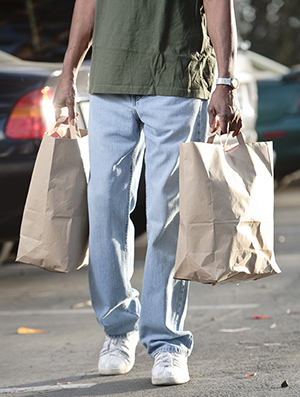After back surgery: More tips for daily living
Getting back to your daily routine means taking care to protect your back. These tips can help you avoid injuring your back and delaying your wound from healing.
Grocery shopping
Buy small amounts of groceries each time. Ask the checker to bag lightly and to use bags with handles. Put the shopping bags on the car seat, not in the trunk or on the floor.

Childcare
If you have small children, arrange for help while you’re recovering. Put the changing table on a raised surface or adjust it to waist height. Use a reacher to pick up small objects, such as toys, from the floor. If you must lift a baby from a crib, lower the railing of the crib. Bring the child close to your body.
Working in the kitchen
Store food and tools you use often on the counters or the middle shelves of the refrigerator. While working, stand with 1 foot in front of the other or resting on a stool.
Driving or riding in a car
Adjust the car seat so that your knees are level with or just below your hips. To get out of the car, pivot on your buttocks and swing your legs out, keeping your knees together. Don’t twist your spine. Use your leg muscles to stand. To get into the car, do the reverse. Don't drive the car if you are taking pain medicine or any medicine that could cloud your mind, make you drowsy, or affect your judgement.
Doing desk work
When you’re ready to go back to work, ask your physical therapist how to arrange your desk or workspace to protect your back. Use a chair with good back support.
Intimacy
Ask your healthcare provider or physical therapist when it’s safe for you to have sex. Side-lying positions may be more comfortable. If you lie on your back, support your neck and knees with pillows. Don't arch your back. Also, don't shift the position of your spine too rapidly. Take it easy and see what works for you and your partner.